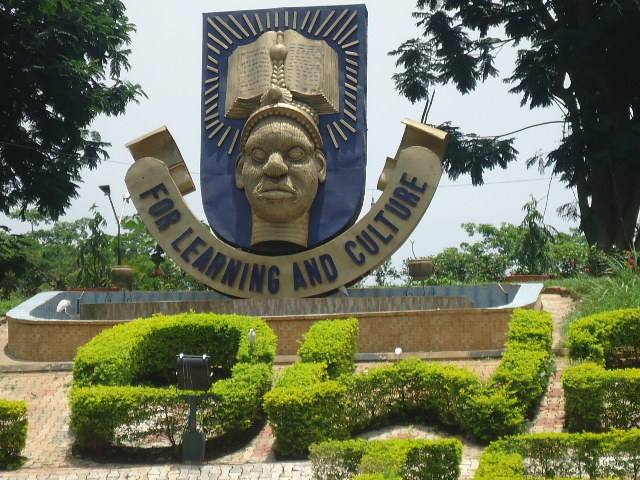[ad_1]
At least 12 persons died in an explosion while scooping fuel in Rumuekpe, Rivers State last Friday, in continuation of the harvest of deaths nationwide. In spite of these killings which are related to natural disasters, IFEDAYO OGUNYEMI examines the statistics of reported killings in the country in the last months of 2022 in this report.
Four unnamed farmers were working on their farmlands in the GandiDalike community located in Rabah Local Government Area of Sokoto State on Saturday, July 2, 2022, when bandits attacked them. None of the four farmers survived the attack that signalled the wave of unabating fatal attacks reported in Nigeria during the second half of 2022.
According to a statement issued by the Sokoto State Police Command a few days after, an 18-old-girl was abducted during the attack. Police Public Relations Officer in the state, SanusiAbubakar, who issued the statement, added that the victim’s bodies were, thereafter, handed over to their respective families for their funeral rites.
Barely hours apart, the Nigerian media also reported that six other persons suspected to be armed robbers were killed in Warri and Asaba, both in Delta State during a gun duel with security operatives.
According to a statement credited to the Public Relations Officer of Delta State Police Command, DSP Bright Edafe, five of those killed were suspected to be part of the gang of armed robbers terrorising residents around Igbudu Market/Old Welfare. The other person who was killed in Asaba was said to be among hoodlums who dispossessed residents of the area of their belongings.
Sunday Tribune found out that from July 2022 till the end of the calendar year, no fewer than 3,857 persons, including the Sokoto farmers, lost their lives during attacks recorded in Nigeria, according to data provided by the Nigeria Security Tracker (NST), a project of the Council on Foreign Relations (CFR) of the United States.
According to the CFR, the NST is a tracker that curates violent incidents related to political, economic, and social grievances directed at the state or other affiliated groups (or, conversely, the state employing violence to respond to those incidents) using media reports from across the country.
Going by the data, an average of 20.96 persons were killed on a daily basis between the months of July and December 2022 – 184 days. There were 841 violent incidences recorded in the country within the period. Only 272 of these violent incidences did not lead to death.
Further analysis of the provided data showed that more killings were reported in December 2022 as the last month of the year had 1,101 reported cases of killings followed by September which had 648. This was followed closely by November when 638 people were killed. The trio of August, October, and July had 517, 481 and 472 cases of reported killings respectively.
The single event that led to the most deaths was recorded in Mutunji village of Dansadau emirate in Maru Local Government Area of Zamfara State where troops of the Nigerian Army, backed by fighter aircraft of the Nigerian Air Force (NAF) clashed with terrorists on Sunday, December 18, 2022. According to military sources, 10 soldiers and 213 bandits were killed in the attack and an unspecified number of civilians were also killed in the process.
Three days after that attack, two Super Tucano jets belonging to the Nigerian military bombed the hideout of Jamā’atAhl as-Sunnah lid-Da’wahwa’l-Jihād (also called Boko Haram) in Sambisa forest located in Mantari, Bama Local Government Area of Borno State and 150 terrorists were killed. The event had the second-highest number of casualties during the period under review. Another mass casualty event is the September 1, 2022 attack in Borno State that led to the killing of high-ranking Boko Haram commanders including AbouHauwa, (Munzir) Amir Shettima, AkuraBuri (Nakif), AbouZainab, Abou Idris;

Perpetrators of the killings
The perpetrators of the violent attacks recorded in Nigeria during this period include security personnel, Boko Haram terrorists, sectarian insurgents, bandits, other armed actors, kidnappers, robbers, and political thugs, among others.
During the period under review, state actors including operatives of the Nigerian military, The Nigeria Police, Nigeria Security and Civil Defence Corps (NSCDC), Nigeria Customs Service (NCS), Federal Road Service Corps (FRSC), National Drug Law Enforcement Agency (NDLEA) and the Nigerian Correctional Service (NCS) were responsible for most killings. A total of 1,495 people including civilians, bandits, terrorists, robbers among other categories of people were killed by security agents across the country.
During security agents’ clashes with other armed terrorists/bandits, 678 people from different categories of life paid the supreme price. 69 others were killed when the terrorists clashed with state actors including the military. 55 persons were killed when security agents clashed with kidnappers just as 26 people were killed when they clashed with robbers. Another four persons were killed when security agents clashed with other armed terrorists/bandits and kidnappers.
Armed terrorists/bandits killed no fewer than 876 people while sectarian actors such as herders were responsible for the violent killings of not less than 276 people. Boko Haram terrorists were responsible for the killings of over 302 people while five others were killed when the terrorists clashed with armed terrorists and bandits. Kidnappers killed 28 persons, angry mob killed 20 persons, and robbers killed 13 persons. Two persons were killed when mob and hoodlums clashed with other armed actors while one other person was killed when security agents clashed with the mob. Only seven of the killings were related to elections.
Commenting on the spate of killings across the country, particularly from the hands of non-state actors, a peace and conflict resolution expert, Dr LekanOketokun, said the government of the day has not been very proactive in carrying out the cardinal function of providing security.
He noted that social crises like unemployment, poverty and the economic situation of the country have given a platform for some non-state activities like banditry and kidnapping for ransom to thrive, adding that such developments fall back to the failure of the government.
“Government has not done enough. When state actors hijack sections of the state to perpetrate violence, it shows that the government is incapacitated. There’s nowhere in the civilised world where the government surrenders to non-state actors in terms of the use of the coercive instrument of the state. People rarely travel at night unlike we did during our university days. People are not even assured of safety during the daytime,” he said.

Location of killings
Seven of those violent 569 violent incidents occurred in drinking establishments and led to the deaths of 17 persons. 20 persons were killed in another seven attacks that took place in government buildings. Three persons were killed in the two attacks that occurred in churches while 18 persons were killed in just one attack that took place at a mosque. Six persons were killed in two attacks on financial institutions while eight persons were killed in five attacks on schools.
State-by-state analysis
A state-by-state analysis of the data provided by the NST showed that Borno State recorded the highest number of killings in the country during the period under review as 1,166 people were killed. If killings that took place along the Lake Chad region are taken into consideration, the number jumps to 1,176. Borno was distantly followed by Zamfara State and Kaduna where 635 and 415 killings were recorded. A total of 248 people were killed in Katsina State and 192 people killed in Niger State between July and December 2022.
The state with the lowest amount of killings during the period under review is Kano State where only three persons were killed. It was closely followed by Ekiti State – 4 and Jigawa State – 5. Both Gombe and Bayelsa States had seven reported killings apiece.
The most affected state with the highest number of violent events (63) leading to deaths is Kaduna State. It was followed by Borno (55), Katsina (39), Plateau (33) and Zamfara (31).

Affected regions
During the period under review, the cumulative number of persons killed in the North stand at 3,371 while 486 people were killed in the Southern region cumulatively in six months. The killings in the Northern region may not be unconnected to the rise in the activities of rampaging bandits whose reign has brought terror into the land.
North-West had the highest number of reported killings with 1,377 deaths during the period while North-East had 1,355 reported killings. A total of 639 people were killed in North-Central, and another 254 people were killed in the South-East. In comparison to the other geopolitical zones, the South-West had relative peace as only 73 people were killed while 159 people were killed in South-South.
The highest number of killings recorded in the North-West zone came from Zamfara State – 635, Kaduna – 415 and Katsina – 248. Sokoto had 61, Kebbi had 10, Jigawa had five while only three persons were killed in Kano State in the last six months of the year.
In the North-East zone, the highest number of reported killings were from Borno State – 1,166. Coming distant second on the ranking of states in the zone was Bauchi State where 65 killings were recorded and Taraba State – 55 and Yobe State – 42. 10 persons each were killed in Adamawa State and along the Lake Chad border while Gombe State reported seven killings.
In the North-Central zone, Niger State appeared to be the most affected state by killings as 192 people were killed during the period under review. It is closely followed by Benue State which had 167 reported killings and Plateau State which recorded 139. The state with relative peace in the same region, according to the NST data, is Nasarawa where 18 killings were recorded. It is followed closely by Kwara and Kogi States which had 23, and 48 killings while Abuja, on the other hand, has 52 reported cases of killings.
Reported killings in the South-East came from Anambra – 77, Enugu – 66, Imo – 57, Ebonyi – 28 and Abia – 26.

Source: Nigeria Security Tracker (NST) Created with Datawrapper
In South-South, Delta recorded 55 killings, Rivers – 33, Edo – 32, Cross River 22, and Akwa-Ibom 10 while Bayelsa had only 10 reported killings
In the South-West which appeared to be relatively peaceful, Lagos had 22 reported cases of killings, Ogun and Osun States both recorded 13 killings apiece while Oyo, Ondo and Ekiti recorded 11, 10, and 4 killings respectively.
Commenting further on the country’s security situation, Oketokun expressed worry that the gadgets in the hands of non-state actors appear to be more sophisticated than those with security agents.
He said: “The premium placed on the lives of people is very low. Security agencies rarely investigate killings. They just announce the deaths. In other climes, if you killed somebody 30 years ago, don’t think you have escaped justice until you have entered the grave. Here, impunity seems to be the order of the day and that’s why killings keep escalating.
“The perpetrators of the Kaduna-Abuja train attack have not been apprehended. The perpetrators are too brazen to ask for ransom while the government is there. They said they arrested the perpetrators of Owo killings but nothing has been heard since about the trial and other things.
“The number of killings has not justified the huge spending on state security. It seems corruption has eaten deep into defence and security votes spending as we see in media reports. The welfare of security agents must be improved. Police and military officers that we see appear to lack the kind of gadgets that will enable them to arrest the security situations in the country.”
He urged the new administration that will emerge from the February 25, 2023, general elections to consider implementing fresh ideas that can guarantee security. He listed the ideas to include the issues of improved welfare and provision of needed gadgets, state and community policing, adding that the centralisation of the security architecture hasn’t fully addressed the peculiarities of security situations in the country.
Visualisation by IfedayoOgunyemi
Source: Nigeria Security Tracker (NST)
READ ALSO FROM NIGERIAN TRIBUNE
[ad_2]






